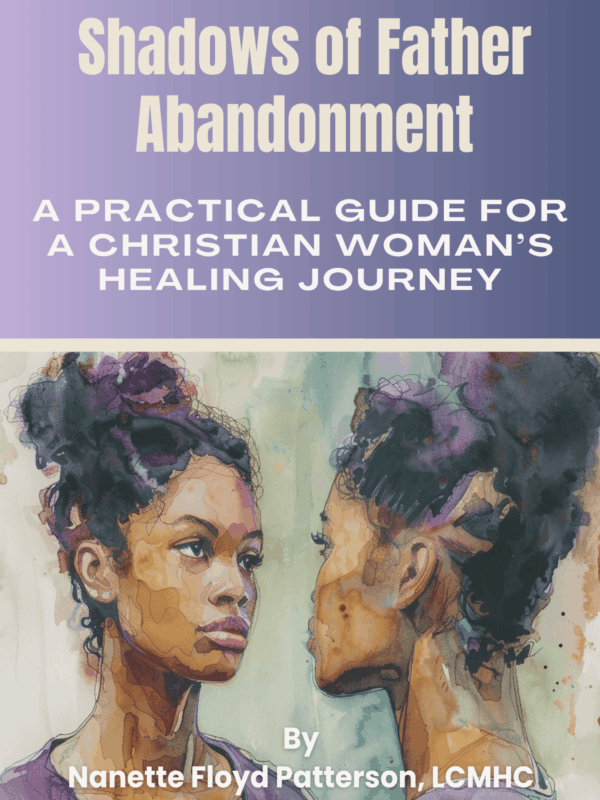
When people hear the phrase “father abandonment,” most think of a dad who physically left. Maybe he walked out, disappeared, or chose not to be involved. But father abandonment goes deeper than a missing body in the home.
Some wounds come from fathers who were physically present but emotionally unavailable. Others come from broken promises, harsh words, or passive roles. If you’ve ever felt unseen, unsupported, or unloved by your father, there’s a chance you’ve been shaped by father abandonment, even if no one ever called it that.
Let me explain the deeper meaning of father abandonment and why its effects still show up years later.
1. Emotional Unavailability
Some fathers are in the home but never connect emotionally. They don’t ask how you feel. They don’t offer comfort when you cry. They don’t celebrate your joys or sit with you in pain. Their absence is quiet, but powerful.
Emotional abandonment often leads to a fear of intimacy, low self-worth, and constant people-pleasing. You may have learned to silence your feelings, or wonder if your emotions are too much for others to handle.
2. Inconsistency and Broken Promises
Fathers who show up sometimes and disappear at other times leave behind confusion. Maybe he made promises and didn’t keep them. Maybe you could never count on him. Or maybe his love felt like something you had to earn.
That pattern creates anxiety and mistrust. You may expect disappointment even from people who say they love you. You may find yourself sabotaging relationships before others can let you down.
3. Criticism Instead of Care
Some fathers criticize more than they affirm. Their words tear down more than they build up. When you hear more about your flaws than your strengths, it shapes how you see yourself.
Constant criticism can create internal shame. It can make it hard to accept compliments, rest in love, or believe that God’s grace could really be for you.
4. Mental Absence Due to Addiction or Depression
Sometimes fathers are physically there but mentally and emotionally absent. This could be because of addiction, untreated mental illness, or unresolved pain of their own. Their inability to connect or engage leaves children feeling invisible.
Many daughters of emotionally checked-out fathers learn to carry the emotional weight of the family. They become caretakers early and learn to deny their own needs.
5. Passive Leadership or Disengagement
A father might never have spoken harmful words, but he also never offered guidance or direction. He didn’t protect. He didn’t affirm. He didn’t help you understand your worth or set expectations.
Without a clear example of loving, godly masculinity, it can become hard to know what to expect from men or even how to see God as a Father.
Let me be clear. My aim in sharing this information is to not blame, but to help women understand the dynamics present and how to grow through it.
Why This Still Matters
Just because someone grows up does not mean the father wound goes away. Unresolved father abandonment can follow a person into adulthood. It shapes how they love, trust, protect themselves, or pursue God.
Many Christian women quietly struggle with this pain. I hear about every week in my counseling practice. They often feel like something is missing but can’t quite put their finger on it. They may crave connection but also fear it. They may overgive in relationships, seek approval, or feel like they need to earn love from God and others.
This is a place many women know well. But it is not the place where the story ends.
There Is Healing on the Other Side
Psalm 68 verse 5 in the ESV says,
“Father of the fatherless and protector of widows is God in his holy habitation.”
God is not just a replacement for the earthly father who left, failed, or wounded. He is a loving Father who restores what was lost. He meets the needs that others neglected. He helps untangle the lies that abandonment planted.
God’s presence brings healing. His Word rebuilds identity. His love redefines what it means to be a daughter.
Ready to Begin the Healing Process?
The first step is awareness. Take time to reflect on what you’ve experienced and how it has shaped you.
You can begin by completing the Father Abandonment Assessment located at the end of this post. This self-reflection tool will help you:
- Recognize what kind of abandonment you may have experienced
- Understand how the wound is showing up in your life today
- Consider which areas God is inviting you to heal
If the questions speak to your heart, you’re not alone in this. Many women carry the same invisible pain. And you don’t have to carry it forever.
Go Deeper with These Tools
If you’re ready to take the next steps, explore these two powerful resources:
This downloadable guide walks you through the emotional and spiritual residue of father abandonment and offers biblical healing for each area. It includes reflection questions, prayers, Scripture meditations, and faith-based practices for growth.
This tool was created to help you move forward. One page, one prayer, one layer at a time.
Feel. Heal. Grow. Repeat.






